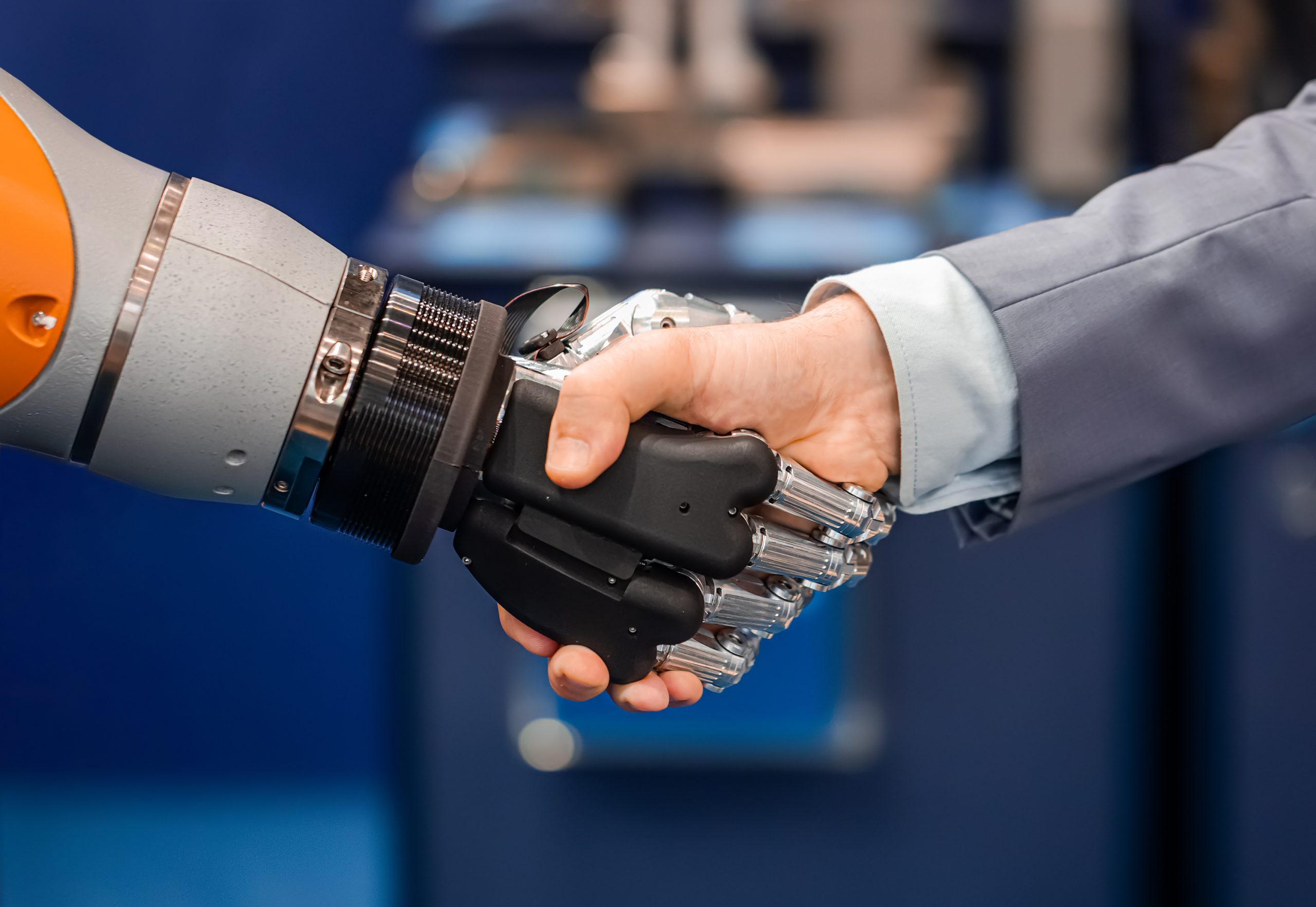
As technology rapidly advances, it brings profound changes to the business world and transforms the structure of the workforce. With the rise of Industry 4.0, artificial intelligence (AI), robotic systems, and automation technologies, human-machine collaboration has become a significant topic. This transformation not only impacts manufacturing processes but also affects office environments, customer service, and even strategic decision-making. So, how will human-machine collaboration evolve in the future? How will human resources (HR) management adapt to this new era?
In this article, we will explore what human-machine collaboration means for the business world, its impact on human resources management, and the expected changes in HR strategies for the future.
The Rise of Human-Machine Collaboration
As technology develops, machines have begun to play a supportive role for workers in many industries. However, this should not be seen as a scenario where people lose their jobs. On the contrary, human-machine collaboration allows humans to focus on their strengths, such as creativity, critical thinking, and problem-solving, while machines take on routine and time-consuming tasks.
With the help of AI and robotic systems, the workforce has become more efficient across various sectors. Robots on production lines handle physically demanding tasks, while AI algorithms in data analytics analyze large data sets, assisting employees in strategic decision-making. This collaboration not only increases efficiency but also enables workers to focus on more fulfilling tasks.
The Future of Human Resources Management
The impact of human-machine collaboration on the future workforce is already being observed in HR management. To keep pace with this new era, HR management must focus on developing employees’ skills and helping them adapt to new technologies. HR will play several key roles in this process:
1.Talent Management and Training
The key to success in human-machine collaboration is the ability of employees to effectively use these technologies. One of the most important roles of HR management in the future will be this. As AI and automation technologies are integrated into business processes, employees will need to learn how to use these systems. HR departments should focus on providing the right training and development programs to help employees improve their skills.
Moreover, it’s essential to remember that in a world where machines and AI work alongside humans, employees will not only need technical skills but also human-centric abilities like leadership, empathy, and problem-solving. HR management should develop training strategies that balance both technical and human-focused skills.
2.Changing Job Roles
We are entering a period where traditional job roles will gradually disappear and new ones will emerge. Particularly in sectors where automation is widespread, some tasks will be performed by machines, but new positions will be created to manage, program, and collaborate with these machines.
HR should adopt a more flexible and proactive approach to finding talent for these new roles and integrating them into organizations. For example, new positions such as “AI Specialist” or “Robotic Process Manager” will emerge, and strategies should be developed for how existing employees can adapt to these roles.
3.Workforce Diversity
In a future where human-machine collaboration will increase, workforce diversity will become even more critical. Managing how employees with different skills collaborate with machines and AI systems will be one of HR’s primary responsibilities. A flexible and diverse workforce that can adapt to technological developments will give businesses a competitive advantage.
Additionally, HR should create a work environment where employees from different cultures, age groups, and genders can collaborate with machines. This diversity can be the key to innovation, and managing it will be crucial for HR.
4.Data Analytics and HR Decisions
The use of data analytics in HR management will become much more widespread in the future. AI-powered business intelligence systems will help HR departments make more effective decisions in areas such as recruitment and performance evaluation. Algorithms that analyze employee performance can determine which employees are more efficient in specific roles and what skills need to be developed.
This data-driven approach will make HR decisions more objective while contributing to employee development processes. For example, decisions about which training programs an employee should attend or in which areas they have leadership potential can be supported by data analytics.
Preparing for the Workforce of the Future
As human-machine collaboration becomes more common in the business world, companies must adopt a proactive approach to adapt to this change. Some key steps HR departments should take to prepare for the future workforce include:
- Continuous Learning and Development: In a rapidly evolving technological world, employees will need to constantly acquire new skills. Therefore, HR management should create continuous learning and development programs to ensure employees keep up with technology.
- Redefining Job Roles: Existing job roles will need to be redefined, and new roles suited to the future workforce will need to be created. HR should develop strategies for finding and hiring talent for these new job positions.
- Flexible Working Models: Flexible working models will become more common in the future workforce. HR departments should develop policies that support flexible working models to meet the changing needs of the workforce.
- Technology-Integrated Recruitment: Hiring employees who can work effectively with AI and automation technologies will be one of the most important strategies for the future. HR should focus on digital skills when attracting the next generation of employees.
Conclusion: Human-Machine Collaboration and the Future of Work
Human-machine collaboration has become an inevitable reality in the future of business. This collaboration not only increases organizational efficiency but also allows employees to engage in more fulfilling and creative work. However, the success of this transformation depends on how well HR management adapts to these changes. HR departments must provide the necessary training and support programs to help employees adapt to new technologies, redefine the workforce, and develop data-driven strategies to build the workforce of the future.
In conclusion, human-machine collaboration not only enhances efficiency but also makes the workforce more flexible, skilled, and diverse. HR management will play a vital role in this process and will be one of the key factors in ensuring the success of the future workforce.
